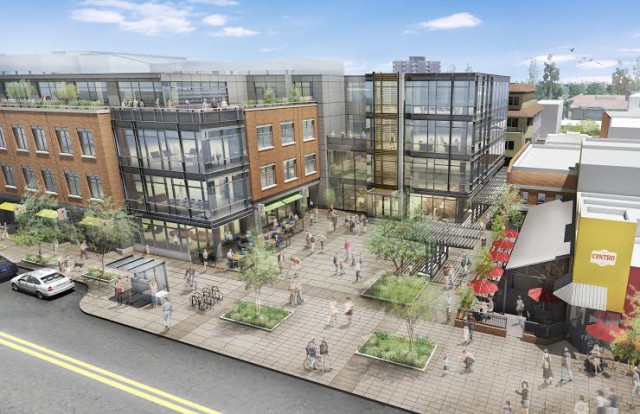
Without deviation from the norm, progress is not possible,” said Frank Zappa in 1971, words that would seem to describe downtown Boulder over the last four decades. From the opening of the Pearl Street Mall in 1976 while Americans were continuing to flee inner cities for suburbia to the current nose-thumbing at national chains, the immensely popular downtown area has bucked the trends, following a path unique to Boulder. But the challenge facing the Pearl Street Mall today is the same one the city of Boulder wrestles with — is it in danger of becoming so upscale that it caters to only a select group of residents and visitors?
According to the 2010 census, the city of Boulder grew by 2.9 percent in the decade before, bringing population to 97,385. Due to strict growth ordinances enacted in 1977, even this modest growth in residents strains demand for a tight supply of housing options, helping to drive property prices even higher. According to Colorado Landmark Realtors, the average single-family home in the city of Boulder now sells for $796,532 and condos go for $314,461.
Couple the higher prices with the positive press the city receives for quality-of-life in Outside Magazine, Sunset, Bon Appétit and numerous other publications, and it seems Boulder is on the track to become the Aspen of the Front Range.
With economic recovery reaching pre-recession levels and three large-scale redevelopment projects currently underway downtown (the Daily Camera building, 909 Walnut, and 901 Pearl), downtown rents have continued to rise, forcing businesses to adapt or move.
And the place the changes are perhaps most evident to the average person is in downtown restaurants.
Just last year, the Catacombs in the basement of the Hotel Boulderado, a Boulder mainstay since 1969, closed and was replaced by License No.1, a high-end cocktail bar serving $10 drinks that caters to a clientele looking for more than cheap beer and shots.
“It’ll be definitely something more in line with the Boulderado brand than the Catacombs, which has become a college bar over the years,” Frank Day, owner of the hotel, told the Daily Camera in November of last year.
But all is not doom and gloom for more frugal residents, as several new businesses have opened in the last few years offering reasonably priced meals and drinks. The Bohemian Biergarten brought the concept of a German-style beer garden to beer-loving locals, and has been packed since opening its doors. The affordable drafts coupled with the relaxed ambiance seem to have struck a chord with patrons.
“I love the relaxed vibe this place offers. I don’t feel like I have to dress up to come here,” says patron Bob Berger. “It feels like the Boulder from when I moved here over a decade ago.”
“Some restaurants that have failed here would have succeeded in other cities,” says Sean Maher, executive director of Downtown Boulder, Inc. “Boulder locals have high standards and that attracts the best. Our organization advocates for a wide array of options from higher-end to more affordable street fare. T/aco and West Flanders would be perfect examples.”
When the new redevelopments reach completion next year, they will bring more office space, new restaurants and higher rents to help cover their building costs.
“With prices near $40 per square foot, the downtown area is on par with Cherry Creek and LODO,” says Maher. “I don’t think you are going to see any bars opening in them offering cheap beer and music. The owners will have to aim for a higher clientele to remain profitable. That being said, I don’t see the Walrus and Sundowner going anywhere. They fill a niche much needed in the area.”
Recently the Boulder City Council has been hotly debating the pace of development with Councilman Sam Weaver recently calling for a nine-month moratorium on all projects in the city. The council rejected that course of action, but began debate on updating the Boulder Valley Comprehensive Plan Oct. 14 with an eye toward directing where the city is heading.
The 901 Pearl redevelopment project is slated to have a large restaurant on the main floor, and sources say the owners of The Med and Brasserie Ten Ten have signed on to develop an eatery in the space, but little more is known as of now.
In the $110 million Camera building redevelopment, plans have been announced for a large restaurant, a marquee retailer on the corner and a movie theater to occupy the ground floor, with a wide array of offices on the upper floors.
So with at least four new restaurants slated to appear downtown in the next few years and rents rising, one has to wonder where we are heading, and what the long-term prospects for affordable entertainment options are. But maybe this is the face of progress as dictated by the market: If customers continue to flock to higher-end establishments, then business owners will continue to supply them.
Respond: [email protected]














